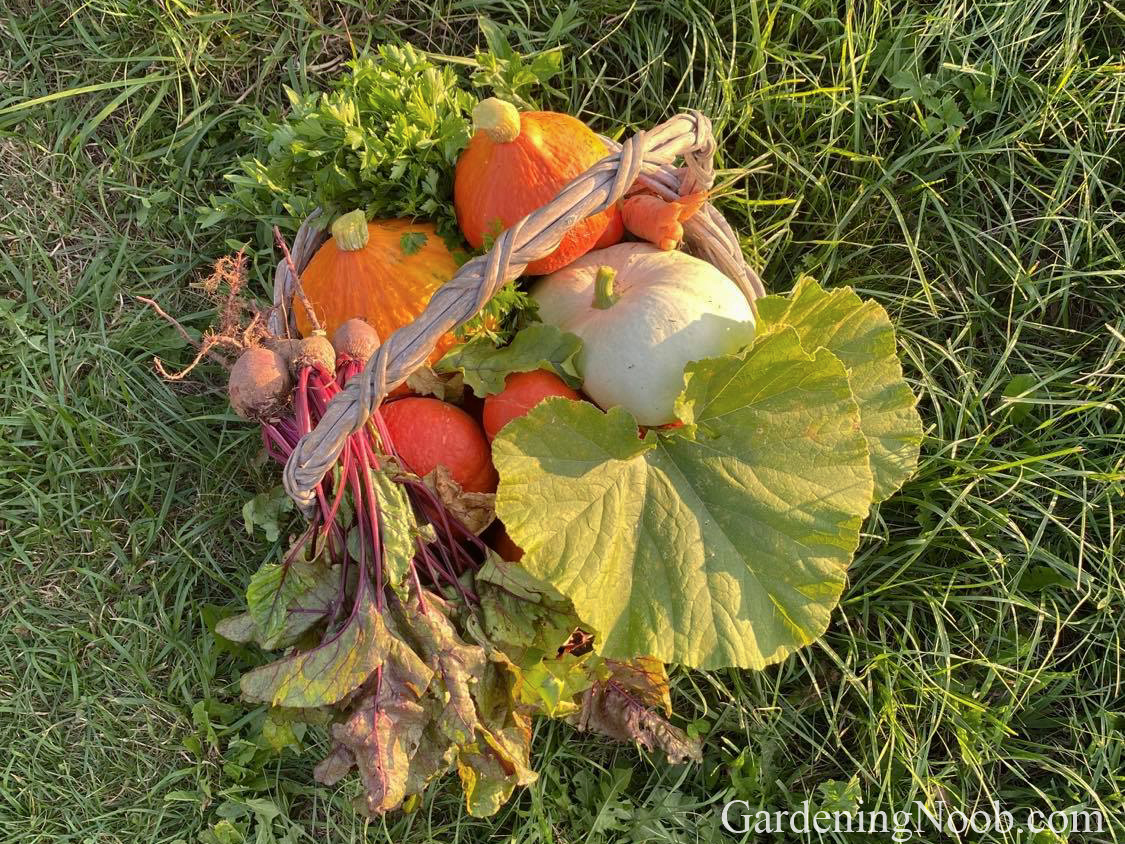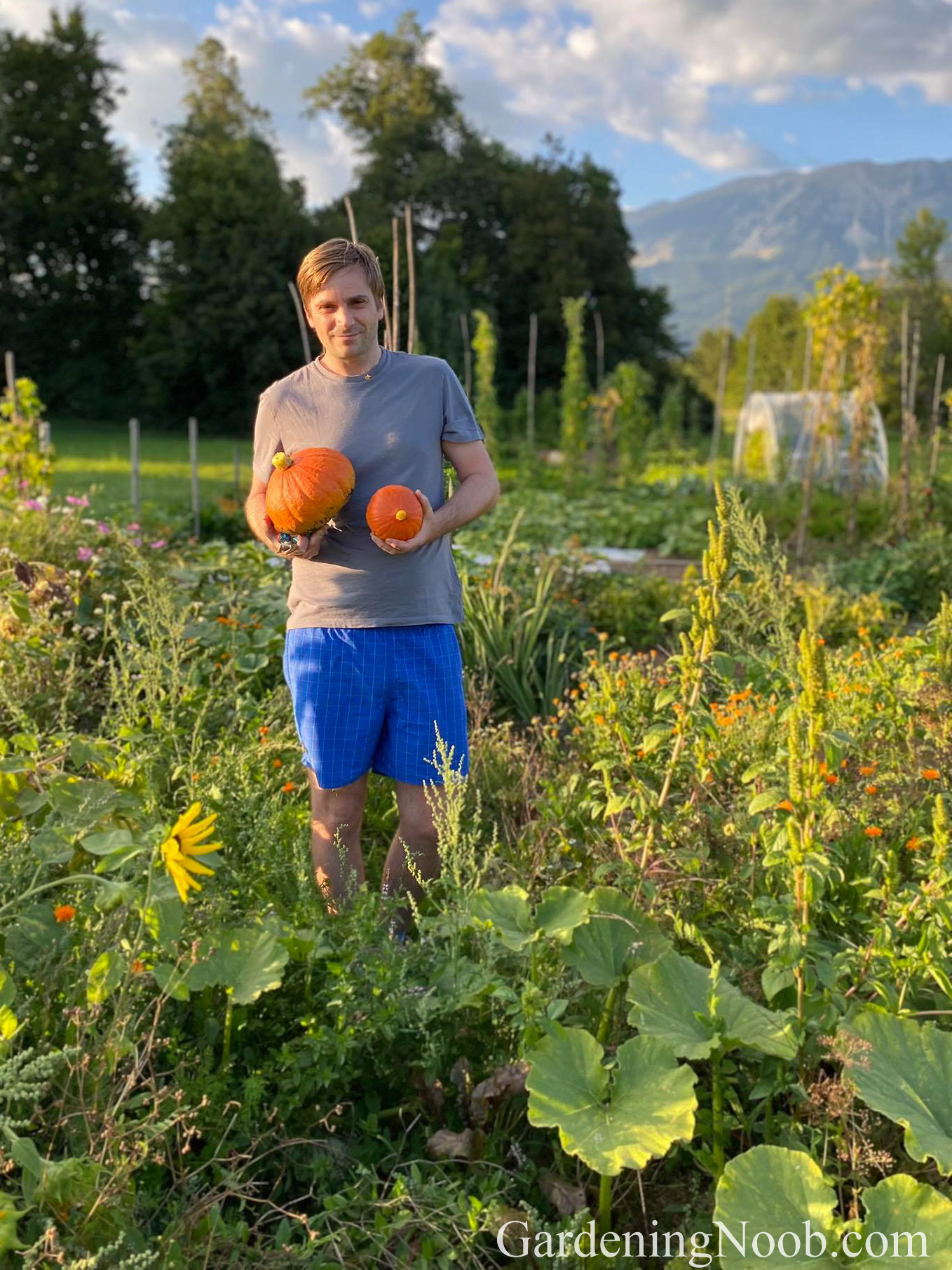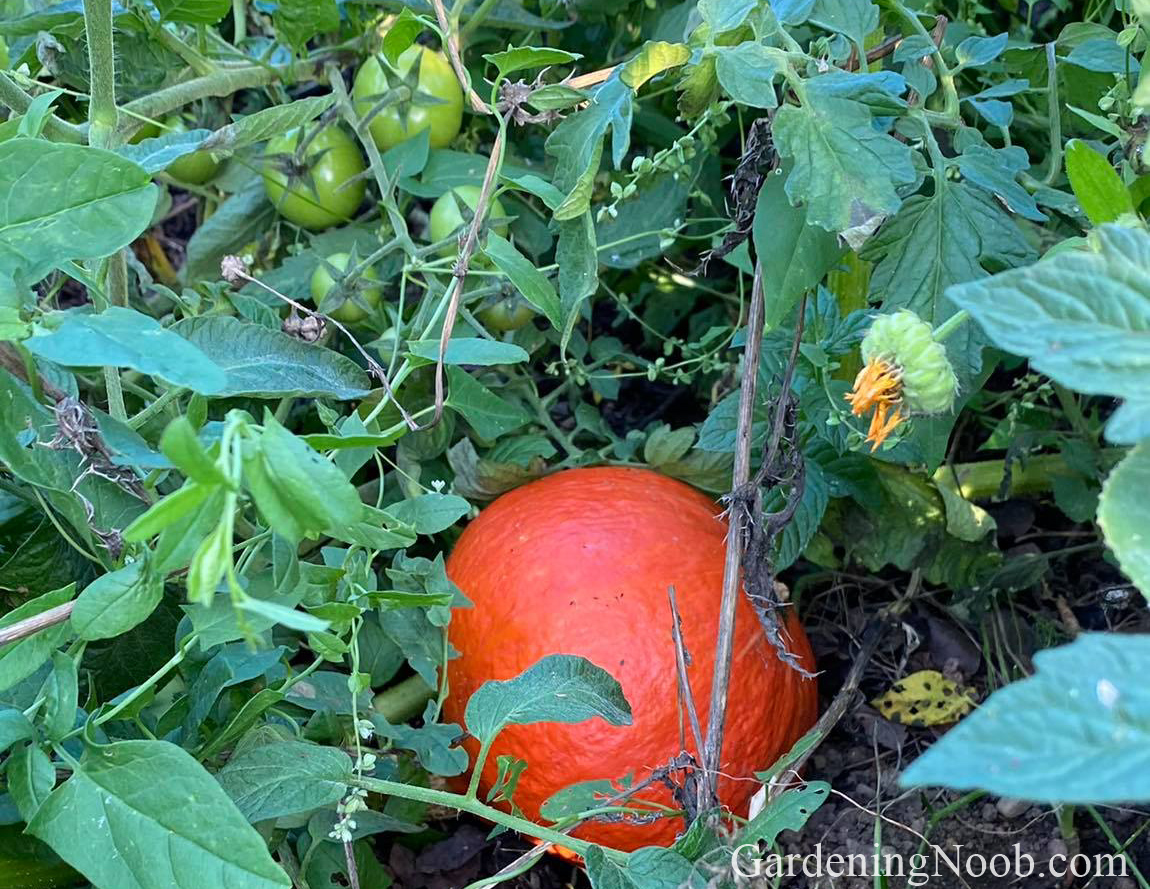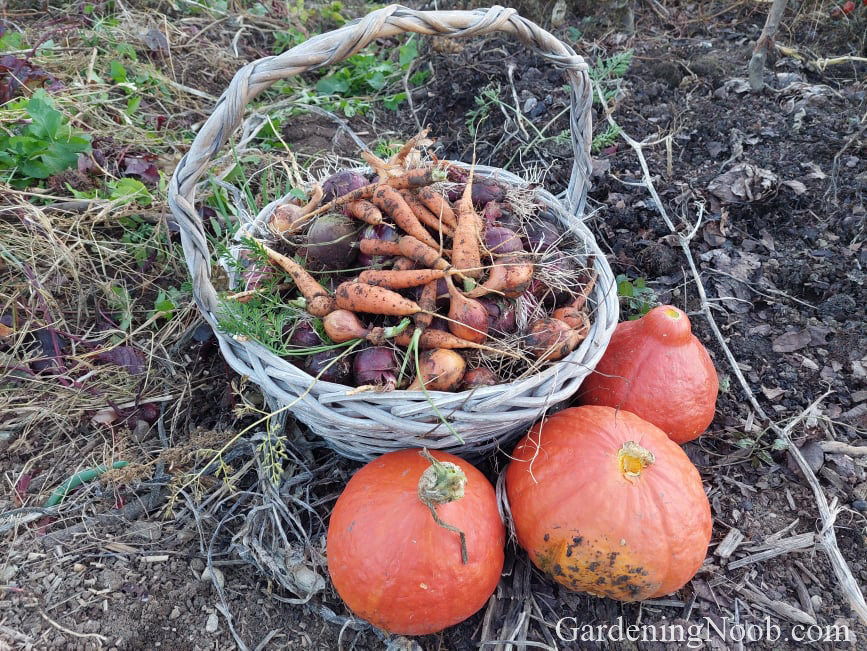
This year’s gardening season was different for me. I knew it was going to be difficult to repeat the success from previous seasons before it even started. You can read my previous blog post to understand why, but in short, I became a father not so long ago and was not able to dedicate as much time to growing vegetables as I could in the past due to all my new resposibilities. That was not all though…
There was also a bad streak of cold weather in the middle of the spring – with freezing temperatures and even some snow. It lasted about a week and it wiped out the vast majority of my homegrown vegetable seedlings. I barely had any left when it was time to transplant them to the allotment. And although I did manage to plant most of the direct-seeded vegetables (such as carrots, bush beans, beetroot, onion, peas and parsnip), later on, I had no time for weeding, thinning and watering during the summer’s dry spells.
The rays of hope that emerged from the compost
As the weeks went by, and as I kept falling behind with the essential garden chores, I realized the season was going to be a real disaster as far as the harvest was concerned. My thinking was we might get some produce from the direct-sown vegetables, but we can forget all about the produce from vegetables I intended to grow from my wiped-out home-raised seedlings. This included everything from broccoli, squash, zucchini to cauliflower, cabbage and large tomato varieties…
But just as I was about to give up on my hopes, the ray of sunshine occured. Out of the compost that I dumped to the middle of the allotment, the self-germinated squash and tomato plants started to grow!
The plants were in their baby stage when I noticed them. There was still a long way ahead of them before they would be in a position to product fruits. But I was happy about it. Suddenly, there was a chance that we were going to have some of the produce that we absolutely love to eat…
The unexpected abundance of red kuri squash

I visited the allotment twice shortly after to transplant some of those tomato self-germinators to a rain-protected area and to support them with a wooden pole. While I was there, I quickly checked on the squash self-germinators too. They were progressing nicely. From then on though, I didn’t visit the allotment until the end of summer and had no idea what was happening with the plants.
Then, in the beginning of September, I finally found the time to check what was going on. It was a beautiful sunny evening. Instead of going on our regular walk to the lake, my family and I decided to go to the allotment and see whether we could find some crops to pick…
When we arrived, I immediately notice the squash plants. Their leaves were enormous. And their vines were all over the place and had even started to cross over to neighbouring allotments!
The thing that really made us happy though were the fruits. We couldn’t see them from a far despite their beautiful, glowy orange color because the garden was completely overgrown by weeds. But when we dived in, we started to notice more and more of them!

So, there we were, my son, my wife and me, having the best squash harvest ever. We could only pick so much of them though because our basket was quickly full and we couldn’t carry any more. I harvested the remaining ones weeks later. It’s needless to say that we enjoyed in each and every one of them in the following weeks and months.
The lessons I learned
This gardening season was far from being a success, but I am going to remember it for the rest of my life for all the things that it taught me…
First of all, it taught me that a garden can and will produce on it’s own if you only give it a chance. With squash plants, all I did was dump the contents of my compost pile to the middle of the allotment and that was it. And we still ended up with more fruits than ever before. Of course, I didn’t plan to leave the compost laying there. It happened due to lack of time. But nonetheless, it was still permaculture at it’s finest.
Another useful thing that I learned this season was that squash (and pumpkins too I assume) absolutely love compost. I heard about it many times before from my fellow gardeners. And I had a gut feeling that it’s true. But now that I had seen it in action, I am absolutely convinced that a compost is a must when it comes to growing these vegetables. The more compost you give them, the more fruits and the bigger the fruits.
And lastly but not leastly, I realized how important it is for us to grow and produce and eat our own vegetables. I guess I already knew this, but have perhaps forgotten it or taken it for granted. And this season with it’s lack of produce reminded me of that…

So, next year, I’m going to put even more time and energy into the gardening, and hopefully create a steady stream of produce that is going to throughout the entire season. Because at the end of the day, the homegrown vegetables are not only much cheaper, but of much greater quality as well. They are always fresh (if you pick them right before you need them), peticide-free and produce almost no carbon footprint at all.
